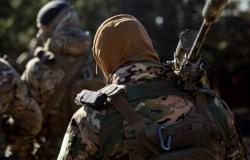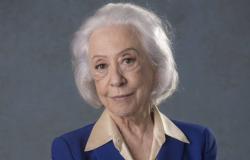In the Stations of the Cross meditations, designed for the Year of Prayer, Francis proposes a face-to-face conversation with Jesus and, in the fourteen stations, he invites everyone to question themselves, looking at themselves and their own conscience, but also looking at the contemporary world and its distortions.
Tiziana Campisi – Vatican News
It is a dialogue with Jesus that Pope Francis develops in the meditations on the Way of the Cross on Good Friday in the Coliseum, a face-to-face conversation with Christ, made up of reflections, questions, insights, confessions, invocations. A long intimate prayer that, in this Year of Prayer, prelude to the Jubilee, allows the human heart to speak. In the fourteen stations, the sufferings of Jesus on the way to Golgotha, the encounters along the Via Dolorosa, the loving gaze of Mary who, under the Cross, becomes Mother of all men, the women capable of tender and courageous gestures in more dramatic moments, the Cyrenean ready to offer his help to the Nazarene condemned to death, Joseph of Arimathea who offers that tomb where God will defeat death, provoke an examination of conscience that later becomes prayer, with a final invocation that repeats the name of Jesus fourteen times.
The Pope introduces the Way of the Cross, emphasizing that prayer characterized each of Jesus’ days, with different nuances: as a conversation with God, “struggle and request, ‘Take this cup away from me'”, “surrender and gift, ‘ But not what I want, but what you want.” Faced, then, with the fear of death and the “anguish under the weight of our sin”, this prayer became more intense and “the vehemence of pain” became “an offering of love” for humanity.
The silence of Jesus
In the first station what makes us reflect is Jesus’ silence in the face of the “false judgment” that condemned him, a fruitful silence that “is prayer, is meekness, is forgiveness, is the way to redeem evil”, to convert what it was suffered as a gift offered, explains Francisco. A silence that today’s man does not know, because he does not find time to stop and remain with God and “let his Word act”, but that “shakes”, because it teaches that prayer is born “from a heart that knows how to listen”.
The cross with which Christ is carried (second station), on the other hand, remembers experiences that we all also live: pain, sadness, disappointments, wounds, failures, crosses that we also carry. “Jesus, how do you pray there?” asks the Pope, giving voice to a common request: how do you pray when you feel overwhelmed by life? Christ invites us to come to Him, if we are weary and oppressed, to give us rest, but we ponder, we ponder, we wallow in victimhood, and then He “comes to meet us,” carrying our crosses on our shoulders, “to take away the our weight.” However, Jesus falls (third station) but has the strength to rise again; the spring that pushes him forward is love, emphasizes Francisco, “because those who love don’t stay on the ground, they start again; those who love don’t get tired, they run; those who love fly”.
Mary, mother of Jesus, gift to humanity
After the Eucharist, Christ gives us “Mary, the supreme gift before dying”, writes the Pope meditating on the fourth station. Jesus on the way to Calvary and his Mother: an encounter that evokes care and tenderness, and that impels us to turn to her, to Mary – Mother that God gives to all men – to be able to “preserve grace”, “remember the forgiveness and the wonders of God”, “taste again the wonders of providence” and “cry with gratitude”. The Cyrenean who helps Jesus carry the cross (fifth station), on the other hand, leads us to reflect on the presumption of doing everything alone “in the face of life’s challenges”. “How difficult it is to ask for a hand, for fear of giving the impression of not being up to the task, we who are always careful to look good and stand out! It’s not easy to trust, even less to trust.” Whoever prays, however, “knows that he is in need”, observes Francisco, and Jesus, who always trusts himself in prayer, does not disregard the help of the Cyrenian, whose gesture teaches “that loving means helping others right there, in their weaknesses. are ashamed.”
The courage of compassion
Among the crowd that witnesses the “barbaric spectacle” of the execution of the Nazarene, there are also those who issue “judgments and condemnations”, casting “infamy and contempt” on him, without knowing him “and without knowing the truth”. “This still happens today, Lord”, recognizes Francis, “a keyboard is enough to insult and publish judgments”, but in Jerusalem, while “many are shouting and judging” Jesus, a woman appears who “does not speak: she acts. She does not complain : she sympathizes. She goes against the current: alone, with the courage of compassion, she takes risks for love, finds a way to pass among the soldiers just to give them the comfort of a caress on the face.” A gesture of consolation, that of Veronica (sixth station), which passes into history and which places us before Christ, “unloved love”, who even today searches “among the crowd for hearts sensitive” to his suffering and his pain , “true worshipers, in spirit and truth.” But “the cross is heavy, it carries the burden of defeat, failure, humiliation.”
Then Jesus falls for the second time (seventh station), and we see ourselves in Him again when we are crushed by things, targeted by life, misunderstood by others, pressed “in the grip of anxiety” and assailed by melancholy, we find that we cannot get up, or when we fall back into our mistakes and sins, when we are scandalized by others and then realize that we are no different. But with Jesus, “hope never ends, and after every fall we rise again”, because God always waits and forgives, even if we fall many times. “Remind me that falls can become crucial moments along the way, because they lead me to understand the only thing that counts: that I need you, Jesus”, is the Pope’s prayer, because life begins again with forgiveness God’s.
Recognize the greatness of women
Jesus meets the women of Jerusalem (eighth station) and, for Francis, it is the reason to exhort “to recognize the greatness of women, those who at Easter were faithful and close” to Christ, “but who are still discarded today, suffering outrages and violence”. Their crying makes us wonder if we know how to be moved by Jesus, crucified for us, if we cry over our falsehoods, or by tragedies, “the madness of war, the faces of children who no longer know how to smile, mothers who see them malnourished and hungry and have no more tears to shed.”
And contemplating Christ stripped of his clothes (ninth station), the Pope’s invitation is to see God made man “in the suffering”, “in those stripped of their dignity, in Christians humiliated by arrogance and injustice, by the unjust gains obtained in the skin of others in general indifference” and to strip “themselves of so many external appearances”. On the cross, then, “while the physical pain is most atrocious”, forgiving those who “are driving nails into his wrists” (10th station), Jesus teaches us that we can “find the courage to choose forgiveness, which frees the heart and revives life” and reveals to us “the height of intercessory prayer, which saves the world”.
Love does not go unanswered
In the darkest and most extreme moment when Jesus cries out his abandonment (11th station), what is the teaching to be kept? “In the storms of life: instead of being silent and holding back, shout” to God, suggests Francis, who in the twelfth station stops at the thief who entrusts himself to Christ, who promises him Paradise, thus making “the cross, emblem of torture, the icon of love”, transforming “darkness into light, separation into communion, pain into dance, and even the grave, the last station of life, into the starting point of hope”. Mary, who in her arms welcomes the dead Jesus (13th station), helps us to say yes to God, she who, “strong in faith”, believes “that pain, crossed by love, produces fruits of salvation; that suffering with God does not have the last word” and, finally, Joseph of Arimathea, who takes custody of Jesus’ body to give him a worthy burial (14th station) shows us that “every gift made to God receives a greater reward”, ” that love does not go unanswered, but gives new beginnings”, that in giving we receive, “because life is found when it is asked for and it is possessed when it is given”.
Tags: Stations Cross Coliseum Franciss meditations
--





